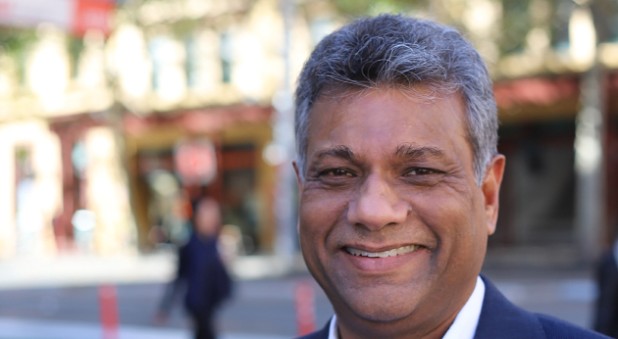Recently I was walking through the city and, as I crossed Martin Place, I noticed the usual queue of men and women lining up to receive their evening meal, while others set up plastic folding tables and baskets of plastic cutlery and paper serviettes ready for that night’s food distribution.
The Sydney City Council says there are about 300 people sleeping on the streets of the CBD each night, with close to that number in city-based crisis accommodation. Across NSW, the number of people without adequate housing is more than 30,000. I am deeply grateful for the work of Anglicare and a number of city and suburban churches that provide assistance to people experiencing homelessness, or who are at risk of homelessness in their local area.
As I continued on my walk, I soon passed another queue. This time it was a queue of people waiting to enter the Louis Vuitton store on George Street. It made for a jarring contrast, though the two queues were barely 500 metres apart.
The people in the first queue were mostly neatly dressed, but it was clear that many had not had a change of clothes for some time. Most looked tired – too tired to be self-conscious about needing free food. There was a little chatter, but they were mostly silent, eyes down, or gazing into the middle distance in contemplation.
The people in the second queue were smartly dressed. Their impending purchases would fit seamlessly into their ensembles. Some looked impatient about the inconvenience of being made to wait, but not enough to leave the queue, evidently. Most passed the time scrolling on their phones, some took selfies. In contrast to the Martin Place queue people were pleased, if somewhat inconvenienced, to be in this queue. They were there by choice, and on a mission.
A queue of shame, and a queue of boasting.
A queue of the desperate, a queue of the indulgent. A queue of “losers” and a queue of “winners”. Some waiting for necessities they couldn’t afford to buy; others waiting for luxuries they couldn’t afford to do without.
In his book Morality – Restoring the Common Good in Divided Times the late Chief Rabbi of the Commonwealth, Jonathan Sacks, wrote of the rising inequality in the Western world. He spoke of “the ever-widening disparity between chief executive pay and the rest… In America in 1965 the ratio of chief executives’ to workers’ pay was 20:1. Today it is 312:1.”
He cited one especially egregious example: in 2018 the chief executive of Disney received a total payment for the year of $US65.6 million, which represented 1424 times the median pay of a Disney employee.
Here in Australia in 2019, our top-paid CEO earned 275 times the national average wage.
The Bible does not teach that there is virtue in poverty. But it does teach that wealth makes it more difficult to cultivate what is essential to see the kingdom of God – poverty of spirit. People who are materially poor are no more or less likely to repent of their sins and trust in Christ for their salvation than people who are financially well off. But Jesus does teach that it is the poor in spirit to whom the kingdom of heaven belongs (Matthew 5:3), and that it is easier for a camel to pass through the eye of a needle than for a wealthy person to enter the kingdom of God (Matthew 19:24).
Folk religion of all kinds associates wealth with God’s blessing and, indeed, we ought to give thanks to God as the giver of whatever we have, whether little or plenty. But because wealth creates the illusion of security, we are prone to the mistake of thinking that our wealth is proof of God’s approval.
In Luke 16 Jesus famously tells a parable about a rich man (who is unnamed) and a poor beggar, named Lazarus, who sits at the rich man’s gate. The rich man “lived in luxury every day”, while Lazarus longed to “eat what fell from the rich man’s table”.
When they have both died their spiritual condition becomes visible, and their places are reversed. Angels have carried Lazarus “to Abraham’s side” but the rich man is in Hades “in torment”. When the rich man begs Abraham to send Lazarus to warn the rich man’s family, his request is denied. Abraham tells the rich man, “they have Moses and the prophets”, and if they will not listen to them, “they will not be convinced even if someone rises from the dead”.
What my walk across the city reminded me was that Sydneysiders, all of us, are spiritual beggars to whom God has made known his riches in the gospel of his Son, crucified for sin and raised for our redemption. All of us are people in need of the gospel. For some, our life circumstances take all the energy and personal capacity that we have, just to get by. Others live well but are blind to their spiritual poverty. But in fact, “all have sinned and fall short of the glory of God” (Romans 3:23).
The good news is that there is no financial qualification for receiving the gifts of the gospel: “the wages of sin is death, but the gift of God is eternal life in Christ Jesus our Lord” (Romans 6:23).






















